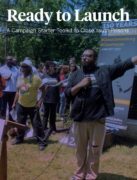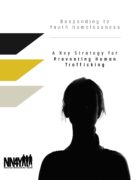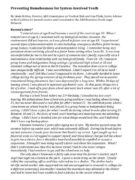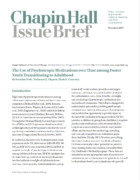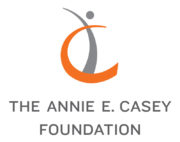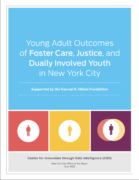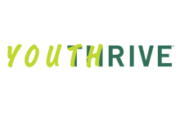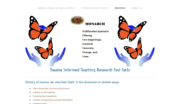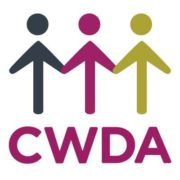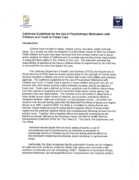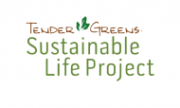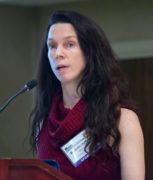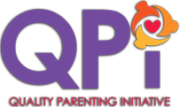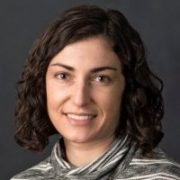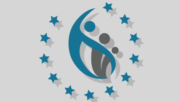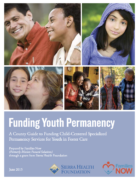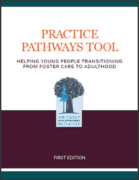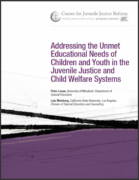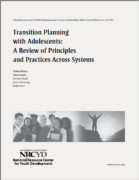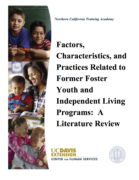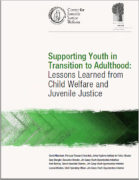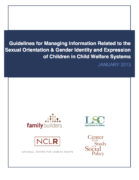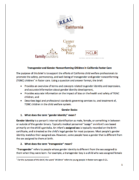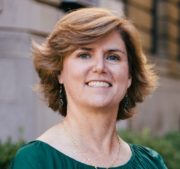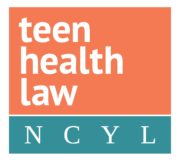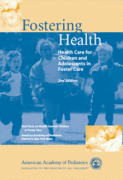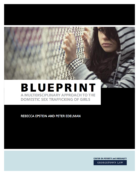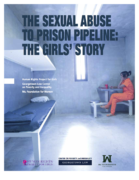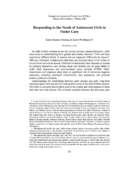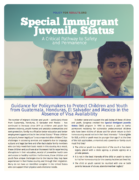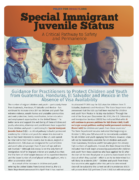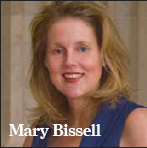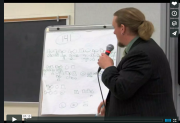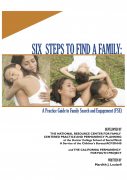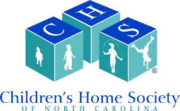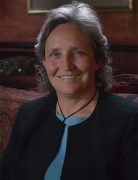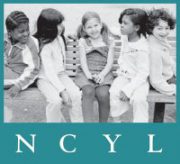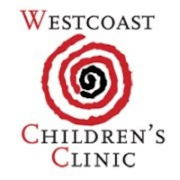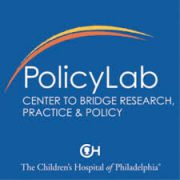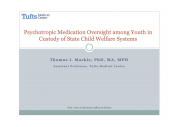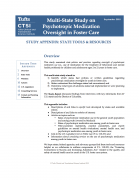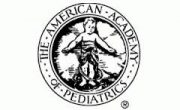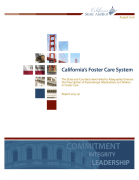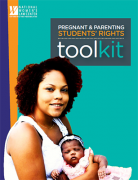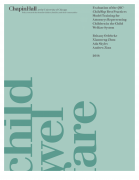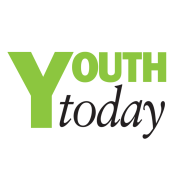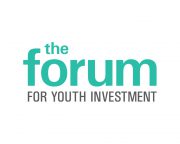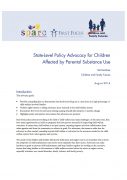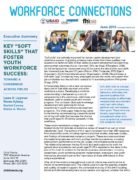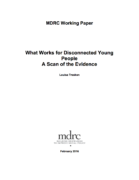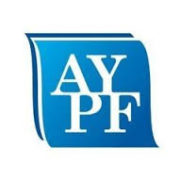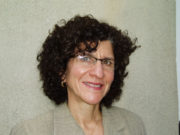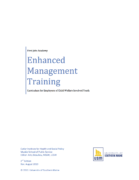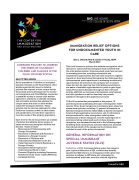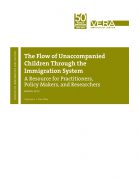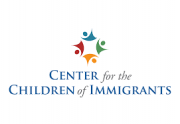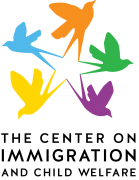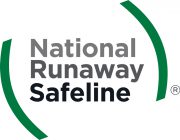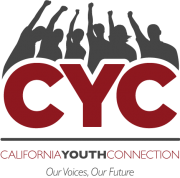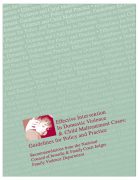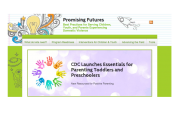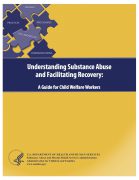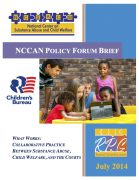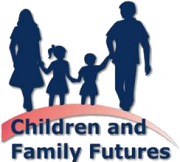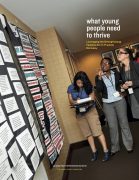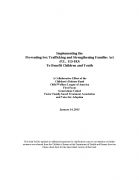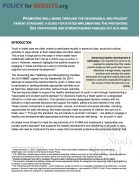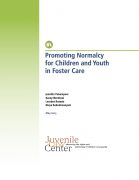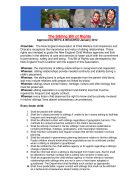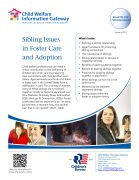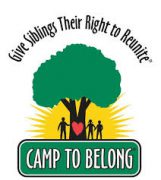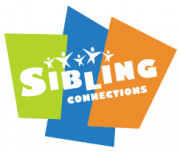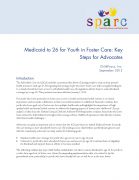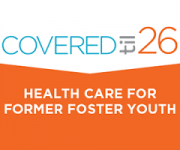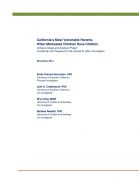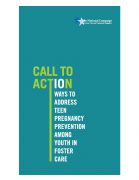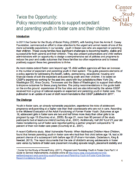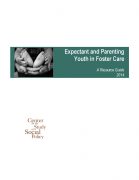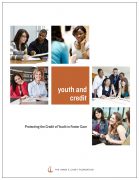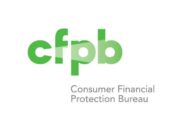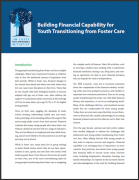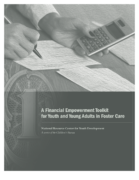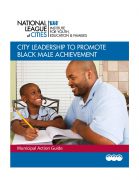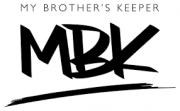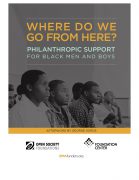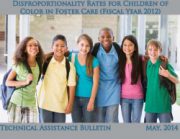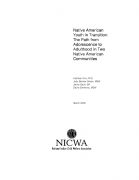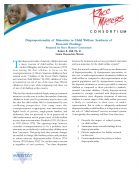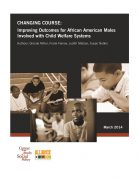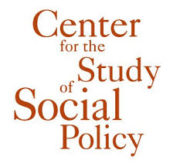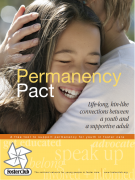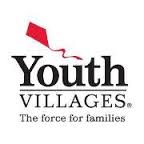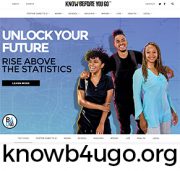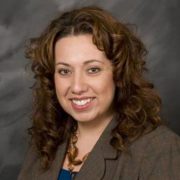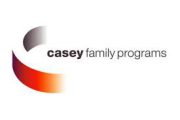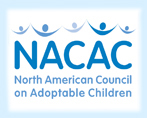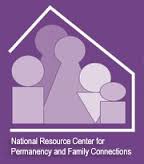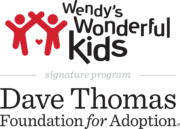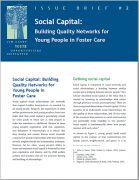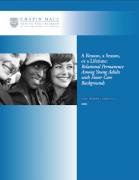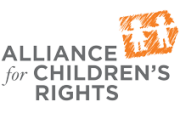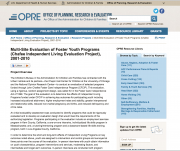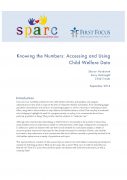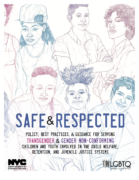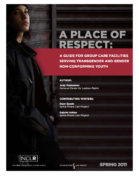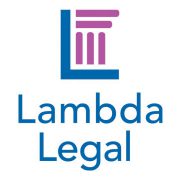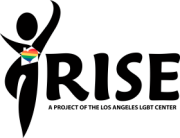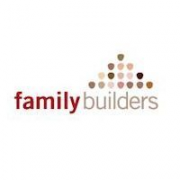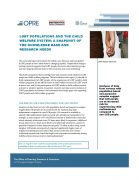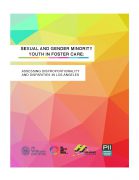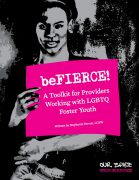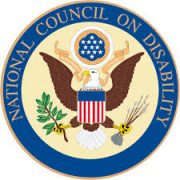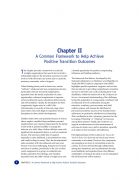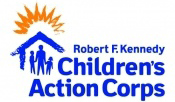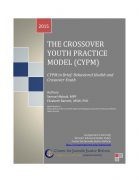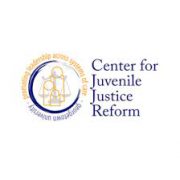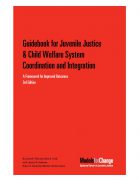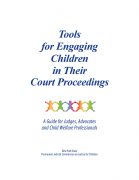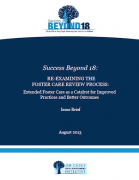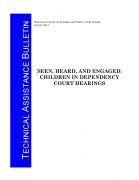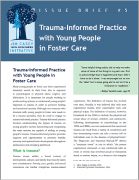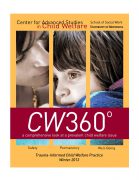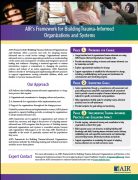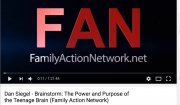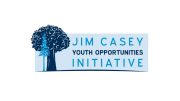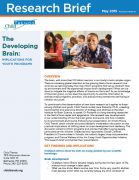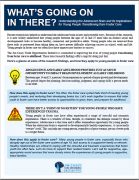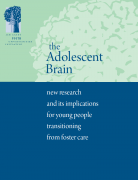This guide details the challenges facing those in the LGBTQ community who are struggling with substance abuse issues. It details common issues and ways to seek help.
A Resource Portal On Issues Impacting Older Foster Youth
To begin your search, select an Impact Issue or Special Population in which you are interested.
This guide advises parents and educators on the prevalence of cyberbullying for LGBTQ youth and provides strategies for addressing and assisting youth exposed to cyberbullying.
Co-authored for the Youth First Initiative, provides step-by-step instructions for building a campaign to close youth prisons and contains many tips and strategies that could be useful to other grassroots movements as well.
Thanks for your submission. We'll be in touch shortly.
Written for the National Network for Youth, reviews the research on human trafficking and youth homelessness and provides recommendations for policymakers and practitioners.
Thanks for your submission. We'll be in touch shortly.
Addresses the role of judges and other stakeholders in the child welfare and juvenile justice systems in preventing homelessness.
Thanks for your submission. We'll be in touch shortly.
This guidebook is a small sampling of the tools that have been used and adapted to help youth and others heal from relational trauma. The guidebook includes multiple activities that can be used by youth and teams to develop individualized combinations of approaches to create youth-specific toolboxes.
AccreditedSchoolsOnline.org is a comprehensive accreditation resource for anyone in the process of selecting a college. The website includes resources for seeking financial assistance for students with disabilities, and supports for students who are hearing impaired.
This website creates in-depth resources that address topics, questions and concerns related to higher education with an eye on affordability and accreditation. The website has numerous resources include comprehensive guidebooks, student interviews, user-friendly search tools, federal datasets and other materials created and vetted by experts in their fields. In particular, the site includes resources for students with dyslexia, students with down syndrome, students who are visually impaired, and career advice for students who are hearing impaired.
This issue brief explores the use of and experiences with psychotropic medications over time for California foster youth transitioning to adulthood. The brief also examines how psychotropic drug use differs for youth who have different types of behavioral health problems.
Thanks for your submission. We'll be in touch shortly.
CalYOUTH is an evaluation of the impact of the California Fostering Connections to Success Act on outcomes during the transition to adulthood for foster youth. CalYOUTH includes collection and analysis of information from three sources: 1) transition-age youth, 2) child welfare workers, and 3) government program data.
Thanks for your submission. We'll be in touch shortly.
The GrandFacts sheets are a state-by-state resource which details key kinship care data and resources for every state and the District of Columbia. Each sheet contains data, key site and local programs and resources, information on public benefits, educational assistance, legal relationship options, and state laws.
This blog post discusses the recent innovations with integrated data systems, which are used to enhance coordination across a wide range of social programs that have a shared stake in supporting families. The post highlights key resources, research and real-world examples of integrated data systems in action.
This study examines the adult outcomes of adolescents who exit the foster care system, juvenile detention and adult correction system, and those who are dually involved in a variety of domains including health and mental health, public assistance and welfare, education, employment, and criminal justice in New York City via administrative data analysis. The report estimates the costs of services used by youth in each group.
Youth Thrive™ is a research-informed framework based on a synthesis of research on positive youth development, resilience, neuroscience, stress and impact of trauma on brain development. Youth Thrive is also the name of the Center for the Study of Social Policy's national initiative promoting changes in policy and practice in order to improve the well-being outcomes of all youth (ages 9-26), with a particular focus on youth in, or transitioning from, foster care. The Youth Thrive™. Hear young people define and talk about five protective factors in this short video.
The AASK Sibling Connection program helps siblings maintain a family relationship and strengthen the bonds between brothers and sisters. Children attend AASK-sponsored activities and events throughout the year. Brothers and sisters may bowl, tour a farm, or see a ball game – creating happy memories. The AASK Annual Sibling Summer Camp brings siblings together for a weeklong adventure at Camp Tontozona near Payson. The children strengthen sibling bonds celebrating birthdays, horseback riding, hiking and swimming in the creek.
Think of Us is a web and mobile life-coaching platform that helps foster youth navigate their transition to adulthood. The platform ensures that youth are aware of all of the steps they have to take to navigate the foster-care system and that they are prepared to live independently after they turn 18 and are on their own.
Thanks for your submission. We'll be in touch shortly.
The federal Permanency Innovations Initiative (PII) is a multi-site demonstration project designed to improve permanency outcomes for children in foster care who face the most serious barriers to permanency. The PII project aims to address the lack of evidence-supported interventions by increasing the rate of children discharged to permanent homes and adding to the body of knowledge about what works in child welfare. In 2010, the Children’s Bureau funded six grantees, a training and technical assistance provider (PII-TTAP), and an evaluation team (PII-ET). Each grantee is implementing a unique approach to the project, both in the populations they target and the interventions they develop or adapt.
This website provides resources concerning alternatives to suspension/expulsion for court involved youth.
Thanks for your submission. We'll be in touch shortly.
The Transition to Independence Program (TIP) at Wayne State University exists to increase college access and improve the graduation rates of foster care youth in Southeast Michigan.
The County Welfare Directors Association of California (CWDA) is a nonprofit association representing the human service directors from each of California’s 58 counties. CWDA led a statewide effort in partnership with a broad coalition of child-serving agencies, which resulted in the creation of the Commercially Sexually Exploited Children (CSEC) Program. They have produced multiple resources including a toolkit, webinar, and online trainings for serving CSEC.
Thanks for your submission. We'll be in touch shortly.
This document is a statement of best practice for the treatment of children and youth in out of home care, who may need psychotropic medicine.
The National Foster Youth Institute (NFYI) was created to organize foster youth and families, foster care alumni, and allies in Congress and across the country, to advocate for the transformation of the nation’s child welfare system.
Thanks for your submission. We'll be in touch shortly.
A Way Home America (AWHA) is a national initiative to build the movement to prevent and end homelessness among young people. AWHA is a coalition of homeless youth providers, advocates, researchers, government agencies, philanthropists and young people.
Thanks for your submission. We'll be in touch shortly.
The Sustainable Life Project (SLP) provides a structured working and learning environment to emancipated foster youth with the goal of guiding and supporting them through a critical transitionary period in order to help them become empowered, self-sufficient adults.
Thanks for your submission. We'll be in touch shortly.
Youth Communication publishes the only national magazine, Represent, written by and for youth in foster care. The magazine publishes stories to let other youth know they’re not alone and help staff appreciate what youth in care have been through. They also suggest to policymakers how the foster care system could better serve its clients. Youth Communication also publish books and curricula for youth in foster care.
Thanks for your submission. We'll be in touch shortly.
Barbara Duffield is Executive Director of SchoolHouse Connection. For more than 20 years, she has bridged policy and practice in early care, education, housing, and homelessness.
Thanks for your submission. We'll be in touch shortly.
The Quality Parenting Initiative (QPI ) is a systems change approach to developing the partnerships between foster families/kinship families and agencies necessary to make the culture, practice and policy changes to focus child welfare systems on excellent parenting as the most important intervention for children and youth in foster care. QPI is a project of the Youth Law Center and was developed with child welfare agencies and developmental experts. QPI is currently statewide in California, Florida, Illinois, Louisiana and Nevada and is being implemented in numerous local jurisdictions including Milwaukee, Cleveland, Forth Worth and Philadelphia.
Thanks for your submission. We'll be in touch shortly.
Dr. Finno-Velasquez is an assistant professor in the School of Social Work at New Mexico State University in Albuquerque, NM. Her research interests center broadly around Latino immigrant child well-being, community level maltreatment prevention strategies, and improving service system response to the needs of immigrant families at risk of child maltreatment. Dr. Finno-Velasquez worked on immigrant issues within the New Mexico child welfare system prior to obtaining her doctorate.
Thanks for your submission. We'll be in touch shortly.
Youth.gov is the U.S. government website that helps you create, maintain, and strengthen effective youth programs. The website includes youth facts, funding information, and tools to assess community assets, generate maps of local and federal resources, search for evidence-based youth programs, and keep up-to-date on the latest, youth-related news.
iFoster is a national non-profit with a mission of providing life-changing resources to children in foster care. The organization's goal is to give foster youth the resources and opportunities they need to become successful, independent adults. iFoster has developed several programs concerning technology in child welfare such as creating a digital locker for foster youth to store important documents, and spearheading a program to give every youth in foster care a laptop.
Thanks for your submission. We'll be in touch shortly.
The Walter S. Johnson Foundation assists transition-aged foster and other vulnerable youth in Northern California and Washoe County, Nevada, to become successful adults by promoting positive changes to the policies and systems that serve them. The Foundation has funded several child welfare and technology programs including the first White House hack-a-thon on foster care and the "Free Laptop" Campaign to distribute an estimated 10,000 laptops to every foster youth in California in three years.
Thanks for your submission. We'll be in touch shortly.
Foster Youth in Action (FYA) builds the skills of youth in foster care to organize and advocate for change. FYA provides peer-to-peer leadership trainings, annual Leaders for Change conferences, and coaching and assistance to supportive adults to empower youth advocates to prepare for a successful future.
Thanks for your submission. We'll be in touch shortly.
This guide was developed to assist California counties with the fiscal analysis useful to replicating successful specialized youth permanency practice. Though specific to California, it is helpful for other states that want to analyze the costs and benefits of achieving youth permanency.
Thanks for your submission. We'll be in touch shortly.
This report introduces the Practice Pathways Tool, which helps states partnering with the Jim Casey Youth Opportunities Initiative identify effective practice components, evaluate existing practices and boost collaboration to advance comprehensive practice reform. The driving force behind the tool is simple: support smarter, sharper decision-making that improves the lives of youth exiting foster care.
Thanks for your submission. We'll be in touch shortly.
As a senior program associate, Patricia serves as the lead workforce development technical assistance liaison for the National Collaborative on Workforce and Disability for Youth, led by the Institute for Educational Leadership (IEL). Patricia conducts research and evaluation of policies, programs, and practices, and provides guidance to the workforce development field. Patricia is also the program director for IEL’s Ready to Achieve Mentoring Program, a multi-site career-focused mentoring program for all youth, including those with disabilities, involved in the juvenile justice system, or connected to foster care.
Thanks for your submission. We'll be in touch shortly.
Anna is the lead policy analyst at the National Center for Youth Law working on reducing overmedication of foster youth and improving access to community and therapeutic services for youth. With a master’s in public policy from UC-Berkeley, Anna works with young adults and current foster youth to ensure their voices influence policies affecting foster youth.
Thanks for your submission. We'll be in touch shortly.
My Life My Rights is a youth-friendly website on legal rights of foster and probation youth in California, focusing on education rights and supports for transition-age youth (housing, benefits, post-secondary education).
Public Counsel is the largest pro bono law firm in the nation. Public Counsel staff attorneys, social workers and social work interns work with pro bono attorneys and law students in assisting children in civil legal matters such as guardianship, special education, government benefits, emancipation, and teen parents. Their website has over 20 youth- and family-friendly brochures in English and Spanish on various legal issues affecting low-income and system-involved children, youth and families.
Thanks for your submission. We'll be in touch shortly.
Martha has over 25 years’ experience in legal and policy advocacy for children and youth in the foster care and juvenile justice systems, and is a national expert on state and federal dependency legislation, legal representation of foster youth, child welfare system improvement, and education issues for foster and probation youth.
Thanks for your submission. We'll be in touch shortly.
Brian has over a decade of experience in legal advocacy and system change efforts for children and youth with developmental disabilities and their families, and is a national expert on improving access to safe and effective housing, services and programs for children and transition-age youth with developmental disabilities in the foster care and youth probation systems.
Thanks for your submission. We'll be in touch shortly.
Many children and youth involved in the child welfare and juvenile justice systems leave school without a regular diploma, and still others graduate without the academic skills and social-emotional competencies that reflect twenty-first century learning skills. School-related problems are similar for students in both systems, in terms of challenges, backgrounds and supports needed. The authors explore the work that is being done in each system to better meet the educational needs of students within each system and those who are known to both - so-called "crossover youth." They further challenge the two systems to think more holistically about how to operate in a seamless manner in meeting those needs.
This paper addresses the need for improved transition planning with adolescents in foster care. A review of best practices across other youth-serving systems leads to a number of recommendations for child welfare systems. The research was conducted through a philosophical lens of transition as a physical, emotional, and psychological process rather than an event. Many exemplary transition planning practices are already occurring in some child welfare systems.
This report reviews the literature on the transition out of the foster care system to independent living. Independent Living Programs have been found to contribute to independence for some former foster youth. One good approach to administering ILPs is to consider individual differences and design programs using a person-centered approach. Multiple studies also suggest that enrollment in ILPs should commence early. Furthermore, programs should foster and encourage mentor relationships for youth during the transition to independent living and provide extended aftercare services.
This paper discusses the successes and challenges that juvenile justice and child welfare agencies face in preparing the youth they serve for a successful adulthood. The paper describes assessment, case management, and other practices implemented in either system that have shown promise in improving outcomes for the transition-age population.
This publication is a product of the Putting Pride into Practice Project, a project of Family Builders by Adoption, to help child welfare professionals better serve LGBT children and youth in foster care. These guidelines provide direction to child welfare agencies on how best to collect, record, and disclose information on the sexual orientation, gender identity, and gender expression of children and youth in foster care. Developed in partnership with Legal Services for Children, the National Center for Lesbian Rights, and the Center for the Study of Social Policy, these guidelines will help agencies develop, track, and assess needs of LGBT children and youth.
The purpose of this brief is to support the efforts of California child welfare professionals to promote the safety, permanency, and well-being of transgender and gender nonconforming (TGNC) children in foster care. Using a question and answer format, the brief provides an overview of terms and concepts related to gender identity and expression, and accurate information about gender identity development; provides accurate information on the impact of bias on the health and safety of TGNC children; and describes legal and professional standards governing services to, and treatment of, TGNC children in the child welfare system.
Dr. Collins is the Chair and Professor of Social Welfare Policy at the Boston University School of Social Work. Her interests include child welfare policy, transition to adulthood for vulnerable youth; compassion in social policy, and evaluation of social services. She has participated in multiple evaluations of caseworker training for independent living services.
Thanks for your submission. We'll be in touch shortly.
For more than a decade, Jama has worked in the field of lesbian, gay, bisexual, transgender, and questioning youth homelessness. Jama brings a comprehensive understanding of the issues facing both homeless gay and transgender youth and also the service providers with whom they work. As a trainer, Jama has led numerous workshops and has provided technical assistance to service providers throughout the United States and Canada.
Thanks for your submission. We'll be in touch shortly.
Dr. Bloom is the founder and former executive director of the Sanctuary Model, an in-patient psychiatric program for the treatment of trauma-related emotional disorders. In partnership with Andrus Children’s Center, Dr. Bloom has established a training institute, the Sanctuary Leadership Development Institute, to train a wide variety of programs in the Sanctuary Model®. The Sanctuary Model® is being applied in residential and multi-service treatment programs for children, inpatient mental health programs, schools, domestic violence shelters, group homes, homeless shelters, juvenile justice programs, and communities across the United States and internationally.
Thanks for your submission. We'll be in touch shortly.
Dr. Bryant’s career spans 30 years in youth services in both the private and public sectors. Her work in government includes serving as associate commissioner for the Office of Youth Development at the New York City Administration for Children’s Services. She was appointed by New York City Mayor Michael Bloomberg to the New York City Panel for Education Policy. At Inwood House, she convened a Citywide Dialogue on Teen Pregnancy, which featured stakeholders from government child welfare, health, education, and poverty agencies, as well as research, philanthropy, policy, and service providing agencies.
Thanks for your submission. We'll be in touch shortly.
The National Center for Youth Law’s Adolescent Health Law Project was established to provide resources and information to health care providers about laws pertaining to minor consent, confidentiality, child abuse reporting, and other adolescent health concerns for youth in California.
Thanks for your submission. We'll be in touch shortly.
This document is an overview of policies related to confidentiality in health care services for adolescents.
The Guttmacher Institute houses a State Center that summarizes the regulations and policies concerning, among other things, teen consent on healthcare services by state. This is particularly important for youth and their caseworkers due to the lack of understanding and clarity on confidentiality and consent which are major barriers to teens getting appropriate healthcare while in foster care.
Fostering Health, developed by an AAP multidisciplinary panel of experts, details the standards of health care for children and adolescents in foster care. It has been designed for use by medical, mental health, and developmental health care professionals, as well as foster parents, social welfare agencies, members of the legal community, health insurance agencies, and policy makers.
This report grows out of a conference held on March 12, 2013, that was hosted by Georgetown Law’s Center on Poverty and Inequality, the Human Rights Project for Girls, and The National Crittenton Foundation. The conference, “Critical Connections: A Multi-Systems Approach to the Domestic Sex Trafficking of Girls,” gathered survivors, direct service providers, advocates, and state and federal government officials to discuss the challenges of addressing the domestic sex trafficking of children and the importance of working collaboratively to help identify and support survivors.
Thanks for your submission. We'll be in touch shortly.
This report exposes the ways in which society criminalizes girls — especially girls of color — who have been sexually and physically abused, and it offers policy recommendations to dismantle the abuse to prison pipeline. It illustrates the pipeline with examples, including the detention of girls who are victims of sex trafficking, girls who run away or become truant because of abuse they experience, and girls who cross into juvenile justice from the child welfare system.
Thanks for your submission. We'll be in touch shortly.
Jeannette has over forty years of experience in advocacy, education, public policy, strategic communications, program development, and direct service delivery. She is an award winning communications professional and is working to build a social justice movement to support the empowerment of girls and young women living at the margin of the American dream.
Thanks for your submission. We'll be in touch shortly.
This article explores some of the questions that systems should ask to meet the unique needs of adolescent girls in child welfare and provides suggestions for improving the well-being of girls.
This brief focuses on opportunities provided through Special Immigrant Juvenile Status (SIJS), and provides recommendations for federal and state policymakers.
This brief provides guidance to practitioners on the special immigrant juvenile status (SIJS) and its impact and overlap with child welfare.
Brooke is a clinical social worker and public interest attorney whose professional expertise is in the areas of children’s health, education, and child welfare. Ms. Lehmann has spent two decades providing direct clinical and advocacy services to children and families while simultaneously working to improve the systems that administer these services through policy development and legislative advocacy.
Thanks for your submission. We'll be in touch shortly.
Young Minds Advocacy, established in 2012, is a nonprofit organization founded to address the number one health issue facing young people and their families—unmet mental health needs. Using a blend of policy research and advocacy, impact litigation, and strategic communications, Young Minds Advocacy works to change attitudes towards mental illness and break down barriers to quality mental healthcare for young people and their families.
Thanks for your submission. We'll be in touch shortly.
Since 1995, the Center for Health Care Strategies (CHCS) has partnered with nearly every state in the country to promote innovations in publicly financed health care, especially for individuals with complex, high-cost needs. CHCS brings together state and federal agencies, health plans, providers, and consumer groups to advance models of organizing, financing, and delivering health care services. CHCS has a focus on high-risk children and youth which includes youth in foster care.
Thanks for your submission. We'll be in touch shortly.
The National Technical Assistance Center for Children's Mental Health (TA Center), located within the Georgetown University Center for Child and Human Development in Washington, DC since 1984, is dedicated to increasing the capacity of communities, states, tribes, and territories, to improve, sustain, and expand Systems of Care and the services and supports provided within them to improve the lives of children, youth, and young adults with or at risk for mental health challenges and their families.
Thanks for your submission. We'll be in touch shortly.
The National Association for Children's Behavioral Health (NACBH) is a member organization with the goal of enhancing the availability and delivery of services for children with emotional or behavioral disturbances and their families.
Equal Futures is a collaboration between FosterEd and the Education Equals Partnership with a goal of providing tools and resources to support school districts, county offices of education, community based organizations and other agencies committed to improving educational outcomes for students from foster care. The toolkit provides resources and guidance for a multiple system-approach to close the achievement gap for students in foster care.
Jennifer Miller is a social worker, child advocate and founding partner of ChildFocus. Jennifer has also worked on a broad range of issues at the Annie E. Casey Foundation (AECF), a national organization dedicated to building better futures for disadvantaged families. She has worked on national kinship care issues for the past 20 years.
Thanks for your submission. We'll be in touch shortly.
Mary Bissell is an attorney, child and family policy expert and founding partner of ChildFocus. She is also an Adjunct Professor at the Georgetown University Law Center where she teaches a class on advocacy for public interest lawyers. Mary has worked on national kinship care issues for the past 20 years.
Thanks for your submission. We'll be in touch shortly.
This is a video excerpt of a Family Finding conference filmed at a training in York County, PA.
This practice guide provides detailed guidance on casework practice that supports family search and engagement in the quest to provide permanency for youth. The guide provides a section on research related to youth permanency, as well as a list of resources.
CHS meets the complex needs of North Carolina's children and families by providing a broad spectrum of programs and services. While the organization has been known for adoption services, CHS also provides post adoption services, foster care, parenting education, family preservation, teen pregnancy prevention and family finding services. CHS participated in a large random assignment evaluation of family finding services.
Courtney's House provides services to victims of human sex trafficking in the Washington D.C.area, including survivor-focused, trauma-informed, and holistic services.
Thanks for your submission. We'll be in touch shortly.
Michelle Guymon is the Director of Placement Administrative Services with Los Angeles County Probation Department. She is the project manager for the domestic minor sex trafficking program in Los Angeles County, which is the only probation department in the nation to create a dedicated Child Sex Trafficking Unit. Michelle can speak to the intersection of CSEC and juvenile justice.
Thanks for your submission. We'll be in touch shortly.
The mission of My Life My Choice (MLMC) is to prevent the commercial sexual exploitation of adolescents through survivor-led programs that educate and empower youth to find their voice and create a positive life path while working to eliminate the violence and victimization of sexual exploitation. MLMC’s 10-session Exploitation Prevention Curriculum is designed to change girls’ perceptions of the commercial sex industry, as well as build self-esteem and personal empowerment.
The National Center for Youth Law (NCYL) is a non-profit law firm that helps low-income children achieve their potential by transforming the public agencies that serve them. NCYL has effective multidisciplinary protocols for serving CSEC survivors.
Thanks for your submission. We'll be in touch shortly.
The National Center for Missing & Exploited Children serves as the nation’s clearinghouse on issues related to missing and sexually exploited children. The Center provides information on child sex trafficking, child welfare, and the intersection with missing children as well as screening tools.
Thanks for your submission. We'll be in touch shortly.
The Commercial Sexual Exploitation – Identification Tool (CSE-IT) was developed to meet the need for a validated screening tool for commercial sexual exploitation.
Thanks for your submission. We'll be in touch shortly.
The mission of PolicyLab at The Children’s Hospital of Philadelphia (CHOP) is to achieve optimal child health and well-being by informing program and policy changes through interdisciplinary research. PolicyLab is a Center of Emphasis within The Children’s Hospital of Philadelphia Research Institute, one of the largest pediatric research institutes in the country.
Thanks for your submission. We'll be in touch shortly.
The Protected Innocence Challenge is a comprehensive study of existing state laws designed to inspire and equip advocates. Under the Challenge, every state receives a Report Card that grades the state on 41 key legislative components that must be addressed in state law in order to effectively respond to the crime of domestic minor sex trafficking.
Yasmin Vafa is co-founder and Executive Director of Rights4Girls. Yasmin’s work and advocacy focus on the intersections between race, gender, violence, and the law. She educates the public and policymakers on these issues and how they affect the lives of marginalized women and girls.
Thanks for your submission. We'll be in touch shortly.
Maheen is an attorney who has extensive experience working with system-involved youth and their families, with a particular focus on sexually exploited youth.
This presentation summarizes rates of mental health need and psychotropic medication use among youth in child welfare custody.
This study examines state policies and practices regarding oversight of psychotropic medication use (i.e., use of medication for the treatment of behavioral and mental health problems) for children and adolescents ages 2 to 21 years in foster care.
This document, developed by the American Academy of Child and Adolescent Psychiatry (AACAP), provides information to service providers in community-based systems of care, and families, regarding the role of psychotropic medications in a youth’s treatment plan. It gives guidance to service providers on what to look for in the youth and how best to collaborate with psychotropic medication prescribers before, during, and after a course of treatment with a psychotropic medication.
Dr. Mackie is an Assistant Professor of Medicine within the Department of Medicine, Tufts Medical Center, with a joint appointment at the Sackler School of Graduate Biomedical Sciences at Tufts University School of Medicine. He has expertise in health services research (mixed methods), the organizational and implementation sciences, health and mental health policy, and sociology of health and illness. He is leading the work of psychotropic medicine use for children in foster care at Tufts Medical Center
Thanks for your submission. We'll be in touch shortly.
The American Academy of Pediatrics (AAP) is an organization of 64,000 pediatricians committed to the optimal physical, mental, and social health and well-being for all infants, children, adolescents, and young adults. The AAP has a special interest in the health and well-being of children and teens in foster care. They facilitate the AAP Council on Foster Care, Adoption, & Kinship Care and their initiative, Healthy Foster Care America (HFCA).
Dr. Christopher Bellonci is the Vice President of Policy and Practice, Chief Medical Officer, at Judge Baker Children's Center. Dr. Bellonci is a Board-Certified Child/Adolescent and Adult Psychiatrist, and a member of The American Academy of Child and Adolescent Psychiatry's (AACAP) Workgroup on Quality Issues which is responsible for writing the practice parameters that define the standards of care for the field of child psychiatry. He is a leading national expert on the use of medication for children with mental health issues, particularly those in foster care
Thanks for your submission. We'll be in touch shortly.
This website features all of the information and handouts from a 2012 conference sponsored by the Administration on Children and Families, Centers for Medicare and Medicaid Services, and the Substance Abuse and Mental Health Administration to explore patterns of psychotropic medication use and discuss strategies for improving oversight and monitoring of its use.
As requested by the Joint Legislative Audit Committee, the California State Auditor prepared an audit report concerning the oversight of psychotropic medications prescribed to California’s foster children. The state auditor reviewed case files for a total of 80 foster children in Los Angeles, Madera, Riverside, and Sonoma counties and analyzed available statewide data.
Thanks for your submission. We'll be in touch shortly.
The Pregnant and Parenting Students’ Rights Toolkit outlines the Title IX requirements schools must follow and actions students can take when faced with discriminatory practices. The toolkit includes a summary of pregnant and parenting students’ rights under Title IX, FAQs, avenues to file complaints with the U.S. Department of Education, an action agenda to help students report discrimination, and a collection of government resources and assistance for low-income parents.
The QIC-ChildRep intervention, an in-depth and ongoing professional development initiative, was intended to raise the level of practice among attorneys representing children in child welfare dependency cases and to evaluate how those changes affected attorney behavior and child welfare outcomes. Using a randomized control design, the evaluation addressed the question of whether treatment group attorneys representing at-risk children, would help their child clients have more stable placements and reach permanency faster than child clients represented by control group attorneys who practiced without the intervention.
A national publication, Youth Today, produced a series of videos that chronicle youth affected by substance abuse and youth who are transitioning out of foster care.
Thanks for your submission. We'll be in touch shortly.
Forum for Youth Investment is an organization committed to building support for young people by working with state and local leaders, organizations and communities.
Thanks for your submission. We'll be in touch shortly.
A website with information for survivors and others impacted by domestic violence. A section of their website, "Working With Youth Survivors," is especially helpful for this population.
This brief is aimed at state advocates who are interested in policy approaches to meeting the needs of families in the child welfare system who are impacted by substance use.
This brief highlights the skills, competencies, behaviors, attitudes, and personal qualities that enable youth to navigate their environment, work with others, perform well, and achieve their goals. It identifies five key soft skills that — according to researchers, employers, youth, and program implementers — most enable youth (15-29) worldwide to be successful in the workplace.
This paper provides a scan of the evidence regarding what works in helping disconnected young people, defined as the population of young people ages 16 to 24 who are not connected to work or school. To prepare the paper, MDRC conducted a literature review of relevant policies and programs. The literature reviewed included writing on impact, quasi- experimental, and implementation studies. MDRC also conducted reviews of numerous websites to learn about current policy trends and evaluations in process. To supplement what was learned from written materials, MDRC interviewed a number of practitioners in the field, including representatives from foundations, coalitions, and research organizations.
This brief summaries key provisions of the Workforce and Innovation and Opportunity Act (WIOA). WIOA improves connections to employment and training opportunities that lead to economic prosperity for adult and youth workers. The law strengthened existing workforce development and education programs in ways that can benefit vulnerable youth with barriers to economic success.
Thanks for your submission. We'll be in touch shortly.
Kisha is director of youth policy at CLASP and project director for the Campaign for Youth (CFY), a national coalition chaired by CLASP. Ms. Bird works to expand access to education, employment, and support services for disconnected and other vulnerable youth. She is an expert in federal policy for vulnerable youth and helps ensure national legislation (such as the Workforce Innovation and Opportunity Act) is fully implemented in communities nationwide and has maximum impact for poor and low-income youth and youth of color.
Thanks for your submission. We'll be in touch shortly.
The American Youth Policy Forum (AYPF) works to strengthen youth policymaking by bridging policy, practice, and research. AYPF identifies pertinent, high-quality information on policies, programs, strategies, and research related to better preparing youth for postsecondary education completion and career success. AYPF has resources geared towards vulnerable youth populations, such as young people aging out of foster care or involved in the juvenile justice system.
Lauren B. Gates is the Director of the Center for Social Policy and Practice and a Senior Research Scientist at the Columbia School of Social Work (CSSW). Dr. Gates has conducted research and provided training, developed policy and programs and offered consultation around workplace issues for people at risk of not being able to secure or sustain employment such as individuals with physical or psychiatric disability, youth transitioning from foster care, older people or victims of domestic violence.
Thanks for your submission. We'll be in touch shortly.
First Jobs Academy Enhanced Management Training prepares community employers to successfully hire and retain youth in the child welfare system. Training sessions are designed to help employers understand the strengths and struggles these youth bring to the world of work in order to increase opportunities for success.
This brief focuses on policies that address immigration relief options for undocumented immigrant youth involved in the child welfare system. The policies aim to reduce barriers by ensuring that child welfare practitioners are aware of available opportunities for youth to gain legal status. The policies discussed throughout the brief both provide staff with an overview of immigration relief options and offer guidance to staff on how they can provide assistance throughout the application process.
Aryah has more than 12 years of experience with immigrant and refugee issues. She served as director of advocacy at KIND championing administrative and legislative protections for unaccompanied children. She has also represented hundreds of children in immigration removal proceedings as a children’s attorney in New York at The Door and in Arizona at the Florence Project.
Thanks for your submission. We'll be in touch shortly.
Anne Marie oversees the work of 17 legal services and child advocacy organizations that provide assistance to immigrant children in removal proceedings who are detained in, or have recently been released from, federal custody.
Thanks for your submission. We'll be in touch shortly.
Wendy Cervantes is a Senior Policy Analyst at the Center for Law and Social Policy where she works across the organization’s policy teams to develop and advocate for policies that support low-income immigrants and their families.
Thanks for your submission. We'll be in touch shortly.
This report documents the path unaccompanied children follow through this system. In describing current policy and practice, it serves as a tool for practitioners, policy makers, and researchers working on issues affecting unaccompanied children nationwide.
Bridging Refugee Youth & Children's Services (BRYCS) shares information and increases collaboration among refugee and child and youth serving organizations across the country, including public child welfare agencies. BRYCS also offers child welfare-specific resources and publications for youth and provides cross-training and technical assistance to a wide range of service providers.
The Vera Institute coordinates a national effort to increase pro bono representation for immigrant children in deportation proceedings without a parent or legal guardian. Vera currently oversees 26 nonprofit agencies that provide assistance to children throughout the country, including “know your rights” orientations, individual screenings to identify legal needs, pro bono referrals and coordinated services.
Thanks for your submission. We'll be in touch shortly.
The Center for the Children of Immigrants informs and engages policy makers, advocates, the media and other key stakeholders to ensure that federal and state policies promote the health, well-being and success of immigrant families. The Center also focuses specifically on the intersection of child welfare and immigration policies to increase collaboration and understanding across the two systems.
Thanks for your submission. We'll be in touch shortly.
The Center on Immigration and Child Welfare serves as resource to improve programs and policies for immigrant families in the public child welfare system by offering information in research; policy and advocacy, promising practices and international issues. Resources include CICW toolkits for practitioners, resources for child welfare professional and materials for children and families. State policies and reports are available in a searchable state-by-state database along with resources on unaccompanied minors. CICW’s emerging policy series also features a fact sheet on Immigration Relief Options for Undocumented Youth in Care.
Thanks for your submission. We'll be in touch shortly.
This database collects case-level information on youth in care, including services paid for or provided by the state agencies that administer the Chafee Foster Care Independence Program, as well as for outcomes for youth who are in or who have aged out of foster care.
The National Runaway Safeline (NRS) is the federally-designated national communication system for runaway and homeless youth. Youth and families connect to the hotline at 1-800-RUNAWAY or 1800RUNAWAY.org online crisis services to work through problems and find local help from social services agencies and organizations.
The National Network for Youth (NN4Y) is a membership organization of service providers, state agencies, coalitions, faith-based organizations, advocates, and individuals, and the nation's leading organization advocating at the federal level to educate the public and policymakers about the needs of homeless and disconnected youth. The "Learn" section of NN4Y's website contains very helpful information about runaway and homeless youth, and links to additional resources of interest.
Thanks for your submission. We'll be in touch shortly.
Darla Bardine is the Executive Director of the National Network for Youth (NN4Y). She is a public interest attorney who has dedicated her career to young people and families who experience homelessness, poverty, violence and exploitation
Thanks for your submission. We'll be in touch shortly.
Founded by a group of foster care and supportive adults in 1988, the California Youth Connection works to help foster youth learn leadership and advocacy skills and to engage directly with policymakers to improve the foster care system. It is the only organization in California to engage foster youth in the policy making process.
The Youth Leadership Advisory Team (YLAT) is a partnership between members (current and former youth in foster care), the staff at the Muskie School of Public Service, caseworkers and additional staff of Maine's Department of Health and Human Services and community members.
A handbook for youth by youth in foster care, the Answers Handbook is a publication by the Youth Leadership Advisory Team (YLAT). The handbook is intended to serve as a guide to youth and adults, addressing many of the issues and questions that youth may have about the foster care system. It was originally written in 1998, and continues to be updated.
This 1999 report is a seminal resource on working with families in the child welfare system who are impacted by domestic violence.
This website is a critical resource for those serving children exposed to domestic and community violence and their families.
Futures Without Violence is a nonprofit advocacy organization focused on ending domestic and community violence. The organization is the leading expert at the federal and state levels on the intersection between domestic violence and child welfare.
This guide is intended to help child welfare workers recognize when substance use is a factor in families, and better understand how to support and facilitate treatment and recovery among families in the child welfare system who are impacted by substance use.
This publication summarizes and expands upon the key policy issues presented at a forum at the 2015 National Conference on Child Abuse and Neglect. It highlights collaborative policy and practice changes for addressing the needs of families affected by substance use disorders in the child welfare system and family courts.
Children and Family Futures (CFF), based in Lake Forest, CA, is an organization staffed by experts with specialized knowledge on improving collaborative practice and policy among the child welfare, tribal and family judicial systems to improve outcomes for families in the child welfare system who are impacted by substance use.
The National Center on Substance Abuse and Child Welfare (NCSACW) is a national resource center funded by the Substance Abuse and Mental Health Services Administration, Center for Substance Abuse Treatment and the Administration on Children, Youth and Families, Children’s Bureau, Office on Child Abuse and Neglect. NCSACW provides information, expert consultation, training and technical assistance to child welfare, dependency court and substance abuse treatment professionals to improve the safety, permanency, well-being and recovery outcomes for children, parents and families.
Thanks for your submission. We'll be in touch shortly.
This brief highlights the importance of normalcy to the overall healthy development of young people in foster care; how young people view normalcy and foster care - what they wish for, the barriers they face, and their recommendations; suggestions for how to leverage the Strengthening Families Act for significant improvements in child welfare systems, creating a more supportive and normal environment for young people; and strategies from the field that can serve as examples.
Thanks for your submission. We'll be in touch shortly.
This report summarizes and explains in detail the provisions of the Preventing Sex Trafficking and Strengthening Families Act, with an eye towards possible implementation questions.
Thanks for your submission. We'll be in touch shortly.
This brief is focused on how states can meet the Reasonable and Prudent Parenting Standard requirement of H.R. 4980.
Thanks for your submission. We'll be in touch shortly.
The Juvenile Law Center created this guide to help states embed the normalcy requirements of the Preventing Sex Trafficking and Strengthening Families Act of 2014 into their own state laws and regulations. It includes a detailed overview of why "normalcy" is crucial to healthy child and adolescent developments and the federal requirements prioritizing normalcy for foster youth.
Thanks for your submission. We'll be in touch shortly.
Recognized as an Ashoka Fellow, (global social entrepreneur), Lynn works on behalf of siblings separated in foster care.
The sibling bill of rights was signed by 5 New England states in 2012 and outlines the rights that siblings have for being placed together and visitation
This overview from childwelfare.gov lists several helpful resources on siblings in foster care.
Camp to Belong has been actively reuniting brothers and sisters placed in separate foster, adoptive or kinship homes through Summer Camp Programs and year round events since 1995.
Thanks for your submission. We'll be in touch shortly.
Sibling Connections is a non profit agency in Massachusetts that provides year round reunion opportunities for separated siblings, as well as training and volunteer opportunities for adults who want to better the lives of children experiencing foster care.
Thanks for your submission. We'll be in touch shortly.
This step-by-step guide provides information to child welfare advocates on how to implement the extension of Medicaid insurance for foster youth up to age 26.
Thanks for your submission. We'll be in touch shortly.
Jessica works on foster care and child welfare issues at Children Now, including implementation of the expansion of health care to former foster youth under the Affordable Care Act. Before joining Children Now, she had been involved in youth advocacy for over a decade.
Children Now is a nonpartisan umbrella research, policy development and advocacy organization dedicated to promoting children's health, education, and well-being in California. Children Now is spearheading Coveredtil26, a statewide outreach campaign to ensure all former foster youth living in California know they are eligible for free Medi-Cal coverage until age 26.
Thanks for your submission. We'll be in touch shortly.
This report from California linked child protection and birth records to better understand the experience of teen parents involved with the child welfare system. It found that 20% of teenage mothers in LA County are victims of abuse and one in four teen girls in foster care give birth. Funded by the Hilton Foundation, the report reinforces the importance of building parenting capacity for young parents and early intervention for their children.
Lisa Primus works on CSSP’s child welfare team, currently focusing on the pregnant and parenting youth in foster care and Youth Thrive initiatives. Prior to joining CSSP she was a trainer with the Research Foundation of CUNY where she trained child welfare workers in New York City on best practice for safety and risk assessments, with a focus on promoting the transfer of learning.
Thanks for your submission. We'll be in touch shortly.
This publication highlights multiple publications and programs for pregnant and parenting youth in foster care.
Thanks for your submission. We'll be in touch shortly.
This document identifies 10 key ways that funders, decision makers, child welfare leaders, and others who are interested in improving the health and wellbeing of youth in foster care can begin to make progress on reducing teen pregnancy for this population.
Thanks for your submission. We'll be in touch shortly.
This document highlights state policy approaches to support pregnant and parenting youth in foster care and their children. It includes policy recommendations, state examples, and links to state legislation and policy.
Thanks for your submission. We'll be in touch shortly.
This guide highlights evidence informed and promising practices for expectant and parenting youth in foster care. It focuses on parenting supports, developmental supports for youth and children, and preparation for adulthood, including education, housing and employment.
Thanks for your submission. We'll be in touch shortly.
Leslie Gross is a Senior Associate serving as nationwide site coordinator for the Annie E. Casey Foundation’s Jim Casey Youth Opportunities Initiative. In this role, she is a critical liaison between the Jim Casey Initiative’s national and state-level efforts to help young people successfully transition from foster care to adulthood. Gross works closely with staff, consultants and site leads to create opportunities for young people to achieve positive outcomes in permanence, education, employment, housing, health, finances and social capital.
Thanks for your submission. We'll be in touch shortly.
This publication provides a step-by-step guide for child welfare agencies to implement the federal requirement to check the credit of youth in foster care ages 14 and over.
Thanks for your submission. We'll be in touch shortly.
These sample letters are designed to help caseworkers and others dispute credit issues for youth in and transitioning from foster care.
Thanks for your submission. We'll be in touch shortly.
This curriculum is designed to provide youth in and transitioning from foster care with the foundation for healthy decision making about finances. It includes 7 modules around asset building, credit, money management, education, housing, transportation and saving and investing.
Thanks for your submission. We'll be in touch shortly.
This issue brief shares lessons learned from the Jim Casey Youth Opportunities Initiative's Opportunity Passport program and other efforts to build financial capability for youth transitioning from foster care.
Thanks for your submission. We'll be in touch shortly.
The Financial Empowerment Toolkit for Youth and Young Adults in Foster Care is designed to provide those who work with youth in and transitioning from foster care with strategies and resources to critically evaluate and improve their ability to promote the financial capabilities of youth in foster care. The toolkit is a compilation of lessons learned, best practices and practical tools, which can be used together or separately.
Thanks for your submission. We'll be in touch shortly.
BMAfunders, a project of the Open Society Foundations and the Foundation Center, highlights the role of philanthropy in supporting Black men and boys. BMAfunders strives to facilitate engagement, catalyze collaboration, and promote strategic decision-making in the field of Black male achievement, serving as a resource not only to funders, but also to nonprofits, policymakers, and anyone else interested in fostering Black male achievement.
This municipal action guide, published by National League of Cities' Institute for Youth, Education and Families (with support from the Open Society Foundations Campaign for Black Male Achievement), highlights potential strategies and promising city approaches for reducing the persistent disparities between black males and their peers in the areas of education, work and family.
My Brother’s Keeper initiative was developed to address persistent opportunity gaps faced by boys and young men of color and ensure that all young people can reach their full potential.
This report examines U.S. foundation giving explicitly in support of black males by issue area, type of support, and geographic area served. The analyses explore patterns of giving by larger U.S. foundations over the past eight years, with a focus on giving from 2008 to 2010.
The Latino Practice Advisory Committee is a collaboration between the California Department of Social Services and the County Welfare Directors Association. The committee was formed to address the growing population of Latino children and families in California communities and the child welfare systems, and to facilitate the provision of culturally relevant services that respond to their unique needs.
Since 2011, the National Council of Juvenile and Family Court Judges has published Disproportionality Rates for Children of Color in Foster Care Technical Assistance Bulletins, which identify national and state level disproportionality rates. The Bulletin makes comparisons between 2000 and 2012 disproportionality rates to illustrate changes that have occurred in the last decade regarding overrepresentation of children of color in the foster care system.
This report examines in depth the barriers faced by Native American youth in making a successful transition to young adulthood and recommends a number of ways that tribes and other governments can help.
This paper summarizes research findings on racial disproportionality and disparities within the child welfare system.
Oronde A. Miller is a Senior Associate at the Center for the Study of Social Policy in Washington, DC. Previously, he was manager of Casey Family Programs’ Breakthrough Series Collaborative on Reducing Disproportionality and Disparate Outcomes for Children and Families of Color in the Child Welfare System, a national systems improvement effort addressing race, culture, and child welfare practice and policy and involving 13 public child welfare agencies nationwide.
This paper begins to fill the knowledge gaps about the experiences of African American males' involvement in the child welfare system and lays the groundwork for more intensive and effective action by child welfare leaders, community coalitions and local, state and federal policymakers.
The Alliance for Racial Equity in Child Welfare provides national leadership in support of improved outcomes for children and families of color involved with the nation’s child welfare system. The Alliance has provided consultation to state and local child welfare agencies to test innovative strategies, analysis and reporting on current research about the nature, causes and consequences of racial disparities in child welfare and the development of data tools to enable jurisdictions to better track their progress in achieving better outcomes. Resources include a list of publications, webinars, and a comprehensive data analysis tool for state or local child welfare agencies to use to assess disparities in their child welfare population.
REACH is a cross-cultural collaborative that promotes best child welfare practice through reconciliation, engagement, advocacy, change and healing activities for and between Wabanaki and Maine citizens, communities and governments.Maine-Wabanaki REACH is comprised of staff from the State of Maine Office of Child and Family Services (OCFS) and Wabanaki child welfare programs, Wabanaki Health and Wellness, and the Wabanaki Program.
FosterClub's Permanency Pact is a pledge by a supportive adult to provide specific supports to a young person in foster care with a goal of establishing a lifelong, family-like relationship.
Youth Villages is a private nonprofit organization dedicated to helping emotionally and behaviorally troubled children and their families live successfully. The organization helps more than 22,000 children and families each year from more than 20 states and Washington, D.C.
Thanks for your submission. We'll be in touch shortly.
This video was produced by the L.A. Times, which profiles youth who have aged out of foster care.
Know Before You Go’s mission is to empower youth to become their own advocates, armed with the knowledge and information they need to succeed in work, school and life. Know Before You Go breaks down complicated issues so they’re understandable and youth know how to tackle the barriers they face. Key resources include a mobile app and an extended foster care toolkit.
Thanks for your submission. We'll be in touch shortly.
The National Resource Center for Diligent Recruitment (NRCDR) at AdoptUSKids provides capacity-building technical assistance, tools, coaching, and other support to help states, tribes, and territories create lasting systemic changes to improve safety, permanency, and well-being outcomes for children, youth, and families.
Thanks for your submission. We'll be in touch shortly.
Michelle is Director of the National Center for Youth Law's Foster Youth Education Initiative (Foster Ed). She brings more than 20 years of experience in the non-profit and philanthropy sectors, as well as substantial expertise in child welfare and education.
Thanks for your submission. We'll be in touch shortly.
The Children’s Data Network is a university, agency, and community collaborative focused on the integration and application of data to inform programs and policies for children and their families. The project is housed at University of Southern California's School of Social Work and developed in collaboration with the California Child Welfare Indicators Project.
Thanks for your submission. We'll be in touch shortly.
Co-founded by Cyndi Lauper, the True Colors Fund works to end homelessness among lesbian, gay, bisexual, and transgender youth, creating a world in which young people can be their true selves.
Thanks for your submission. We'll be in touch shortly.
As the Director of the Annie E. Casey Foundation’s Jim Casey Youth Opportunities Initiative, Sandra leads national, state, and local efforts to improve policies and practices so that all young people have the opportunity to successfully transition from foster care to adulthood.
Thanks for your submission. We'll be in touch shortly.
Jennifer is the Executive Director of the Youth Law Center, where she focuses on ensuring that youth in the child welfare and juvenile justice system live in conditions that meet their developmental and emotional needs, and are provided with the opportunities they need to build a foundation for a healthy adulthood. In her work on behalf of system-involved children, Jennifer employs a range of strategies, including developing and drafting legislation; participating in state and national workgroups; working collaboratively with state and local agencies to improve programs and services; and providing training and technical assistance to professionals, youth and families. Jennifer’s work also reflects her passion for engaging involved youth and families as the agents of change and having them centrally involved in advocacy efforts.
Thanks for your submission. We'll be in touch shortly.
Casey Life Skills is a free practice tool and framework for working with youth in foster care. It assesses independent living skills and provides results instantly.
Foster Forward (formerly the Rhode Island Foster Parents Association) is a nonprofit organization dedicated to supporting children, young adults, and families whose lives have been impacted by foster care. Through a wide range of innovative programs and services, they prepare foster children and teens to live independently and empower them to become successful adults.
Thanks for your submission. We'll be in touch shortly.
Ready by 21 is a set of innovative strategies developed by the Forum for Youth Investment that help communities improve the odds that all children and youth will be ready for college, work and life. The Forum and the Ready by 21 National Partners – national organizations from the fields of education, government, nonprofits, business, research and philanthropy – provide tools, training and technical assistance to increase the collective impact of community and state efforts.
Founded in 2000 by a foster parent, FosterClub is an organization aimed at connecting children and youth in foster care to helpful resources and to each other. They publish resources, hold conferences and workshops for youth in foster care, and develop Youth Boards nationally to help young people in foster care make their voices heard. They also host a 7-week internship program for young people in foster care every summer at the organization's headquarters in Seaside, OR.
Thanks for your submission. We'll be in touch shortly.
This short film follows the lives of six young adults who aged out of Montana’s foster care system. The film follows their lives for over two years as they struggle to make it on their own, find their voice and impact the system.
Youth Villages’ YVLifeSet program provides at-risk youth and young adults leaving the foster care, juvenile justice and mental health systems the intensive in-home support and guidance they need to make a successful transition to adulthood.
Founded in 1974 by adoptive parents, the North American Council on Adoptable Children is committed to meeting the needs of waiting children and the families who adopt them, through advocacy, education, adoption support, and leadership development in the U.S. and Canada.
Thanks for your submission. We'll be in touch shortly.
The mission of the National Institute for Permanent Family Connectedness (NIPFC) is to advance permanency for all children and youth, with Family Finding as a core strategy and a method that adds value to service systems. NIPFC provides training, coaching, and implementation support to the staff of child welfare, juvenile justice, mental health, and disability services organizations.
Thanks for your submission. We'll be in touch shortly.
Gail is recognized as a leader in the child welfare field, leading practice changes, developing and driving legislative reforms, and inspiring her peers and policy makers to make permanency in a family the first priority for children and youth.
Thanks for your submission. We'll be in touch shortly.
Though the center is no longer active, their website has archived a number of key resources that address older youth permanency.
The National Quality Improvement Center for Adoption/Guardianship Support and Preservation (QIC-AG) is a national project designed to promote permanency, where reunification is no longer a goal, and to improve adoption and guardianship preservation and support.
The Wendy’s Wonderful Kids Program is an evidence-based program designed to increase adoptions from foster care — focusing especially on children for whom it has traditionally been difficult to find families: primarily older children, children with siblings who are also available for adoption, and children with physical or emotional disorders. Recruiters use a child-focused recruitment model which contains eight key components to achieve a permanent loving family for children waiting in foster care.
Thanks for your submission. We'll be in touch shortly.
This presentation was facilitated by Gerald Mallon with the former National Resource Center for Permanency and Family Connections in 2010. The presentation addresses statistics, permanency definitions, strategies that support permanency, the concept of permanency for youth, various pathways to permanency, what youth say they need, and more.
This issue brief explains why young people who have been in foster care need diverse social networks comprised of quality relationships with their families, schools, communities, and peers and how child welfare policies and practices need to promote these networks. It explains why young people who have been in foster care need diverse social networks comprised of quality relationships with their families, schools, communities, and peers—and how child welfare policies and practices need to promote these networks.
This paper illustrates the power of social capital and other policy strategies to help achieve older youth permanence.
FosterEd serves as a bridge between schools, families, and the child welfare system. Its main objective is to create and mobilize a team of people advocating for foster youth at school. FosterEd partners with local education, child welfare and judicial agencies, to implement a continuous cycle of data-driven interventions.
Thanks for your submission. We'll be in touch shortly.
The Toolkit provides comprehensive information on the education rights of foster youth along with step-by-step procedures and easy-to-use implementation tools to help districts engage in best practices for foster youth education, including best practices for education records transfers.
Alexia brings fifteen years of experience in the nonprofit sector serving youth and families. Her range of experience includes direct service to families involved with the child welfare and correctional systems, administration of government and private scholarships for low income students, and the management of youth development programs. Prior to joining the Stuart Foundation she served as a senior officer for the College Success Foundation, an organization dedicated to increasing college access and success for underserved students.
Thanks for your submission. We'll be in touch shortly.
Treehouse is an agency in King County, Washington, that provides youth in foster care with the essential academic supports to help them graduate at the same rate as their peers with a plan for their future.
Thanks for your submission. We'll be in touch shortly.
The center's mission is to improve college graduation and career achievement rates among youth and young adults (12 to 25 years old) aging out of the foster care system.
Thanks for your submission. We'll be in touch shortly.
California College Pathways helps foster youth across the state achieve their higher education goals and move on to fulfilling careers. The program supports campus networks of programs for foster youth, provides training and technical assistance for emerging and established campus programs, advocates for policies and regulations to improve higher education outcomes for foster youth, and collaborates to create a more seamless pipeline to college for K-12 foster youth.
Thanks for your submission. We'll be in touch shortly.
The Legal Center is comprised of three nationally respected advocates for the educational rights of children in foster care - the American Bar Association Center on Children and the Law, the Education Law Center and the Juvenile Law Center. The center provides a strong voice at the national level for the education of children in foster care, a central clearinghouse of information on foster care and education(specifically goal 8), and training and technical assistance across the country. They also have an active listserv available to the public.
Thanks for your submission. We'll be in touch shortly.
Foster Care to Success (FC2S) provides financial backing for college in the form of scholarships and grants, care packages and family-like encouragement, academic and personal mentoring, and help with internships and employment readiness skills for youth in foster care. FC2S is the largest provider of college funding and support services for foster youth in the nation.
Thanks for your submission. We'll be in touch shortly.
Dr. Courtney has been the Principal Investigator for several of the major research studies that examine the experiences of youth who transition from foster care. His fields of special interest are child welfare policy and services, the connection between child welfare services and other institutions serving marginalized populations, and the professionalization of social work. His current work includes studies of the adult functioning of former foster children, experimental evaluation of independent living services for foster youth, and the influence of juvenile courts on the operation of the child welfare system.
Thanks for your submission. We'll be in touch shortly.
Amy is a Research Fellow at Chapin Hall. She is widely recognized as an expert on pregnant and parenting foster youth and on homelessness among youth who have aged out of foster care.
Thanks for your submission. We'll be in touch shortly.
Chapin Hall at the University of Chicago has the mission of improving the well-being of children and youth, families, and their communities. The organization conducts policy research—by developing and testing new ideas, generating and analyzing information, and examining policies, programs, and practices across a wide range of service systems and organizations. They have conducted several hallmark studies for youth who have transitioned out of foster care.
Child Trends is a non-partisan research nonprofit that conducts research, analyzes data, and evaluates child welfare programs. Child Trends conducted leading research on two major programs that impact older youth in foster care, including the Wendy’s Wonderful Kids recruitment model, and family finding.
Thanks for your submission. We'll be in touch shortly.
The Youth Villages Transitional Living Evaluation is testing whether the Transitional Living program makes a difference in the lives of young people with histories of foster care or juvenile justice involvement. The program, which was renamed “YVLifeSet” in April 2015, is intended to help these young people make a successful transition to adulthood by providing intensive, individualized, and clinically focused case management, support, and counseling.
The Midwest Study is a longitudinal study that follows a sample of young people from Iowa, Wisconsin, and Illinois as they transition out of foster care into adulthood. It is a collaborative effort involving Chapin Hall at the University of Chicago; the University of Wisconsin Survey Center; and the public child welfare agencies in Illinois, Iowa, and Wisconsin. The latest report includes outcomes for the youth up to age 26.
This evaluation sought to determine the effects of Independent Living Programs funded under the Chafee Foster Care Independent Living Programs in achieving key outcomes for youth including increased educational attainment, higher employment rates and stability, greater interpersonal and relationship skills, reduced non-marital pregnancy and births, and reduced delinquency and crime rates. Programs participating in the evaluation include an employment services program in Kern County, California; a life skills program in Massachusetts; and, a tutoring/mentoring and life skills training program in Los Angeles County, California.
This brief provides an overview of the primary national and state data sources that are useful to the child welfare community.
This guide offers child welfare and juvenile justice practitioners concrete guidance, strategies for success, and resources that will enable staff to meet the specific needs of transgender and gender-nonconforming children and youth (TGNC). The guide features an overview of the barriers that TGNC children and youth face in foster care and juvenile detention, a glossary of terms, an overview of affirming resources, policies, and best practices especially meaningful to staff to help affirm and support TGNC young people.
Ellen Kahn provides national leadership and expertise in public education and advocacy efforts to achieve full equality for LGBT families.
Thanks for your submission. We'll be in touch shortly.
Bill Bettencourt leads the get R.E.A.L initiative at the Center for the Study of Social Policy (CSSP), which works to improve healthy sexual and identity development for those involved in the child welfare system.
Thanks for your submission. We'll be in touch shortly.
The report is the first to provide comprehensive guidance about the treatment of transgender and gender non-conforming youth in group care facilities, including detention centers, correctional facilities, and group homes. The report also provides model policies and a framework for staff to ensure that all youth are given a safe and healthy living environment.
The Opening Doors project created legal and child welfare community tools, resources and support for improving outcomes for LGBTQ young people in foster care. This guide contains 4 articles written for the American Bar Association Center on Children and the Law’s Child Law Practice journal. The articles focus on improving practice and outcomes for LGBTQ youth. The first provides background and context for the issue. The second addresses negative attitudes professionals may have, and how they can overcome those attitudes to benefit youth. The third discusses building a strong lawyer-client relationship to provide the best possible representation. The last builds on the third and provides practice tools for judges and lawyers throughout the life of a case.
Thanks for your submission. We'll be in touch shortly.
The goal of the Youth in Out of Home Care Project is to increase the will and capacity of youth- serving organizations to prepare and support LGBTQ youth as they transition from adolescence to independence. The organization has a number of toolkits, publications, and other resources on working with LGBTQ youth in foster care and LGBTQ youth in general. The project provides training and technical assistance to adults working with LGBTQ youth, connects supportive child welfare professionals and advocates, monitors and influences public policy on state and national levels, brings targeted impact litigation to protect the rights of LGBTQ youth in foster care, and provides a legal assistance hotline.
Thanks for your submission. We'll be in touch shortly.
HRC's All Children – All Families project promotes LGBT cultural competency among child welfare agencies through innovative resources, including an online agency self-assessment tool, comprehensive staff training, free technical assistance and more. Agencies across the country recognize the importance of this work and use ACAF resources to improve practice with LGBT youth and families.
Thanks for your submission. We'll be in touch shortly.
get R.E.A.L ‘s goal is to transform child welfare policy and practice to promote the healthy sexual identity development of all children and youth. Jurisdictions and agencies involved in the network are engaged in a variety of system transformation efforts to better support youth in their areas.
Thanks for your submission. We'll be in touch shortly.
The L.A. Gay & Lesbian Center (the Center) operates Recognize Intervene Support Empower (RISE), an initiative designed to help lesbian, gay, bisexual, transgender and questioning (LGBTQ) children and youth in the child welfare system achieve permanency. The Center is one of six grantees in the federal Permanency Innovations Initiative (PII), which includes a formative evaluation, which produced early findings.
Thanks for your submission. We'll be in touch shortly.
Family Advocacy/Family Acceptance projects are designed to provide a continuum of services to support LGBTQ and gender non-conforming youth and their families to ensure stable, permanent placements. These projects are currently providing services in Alameda and San Francisco Counties.
Thanks for your submission. We'll be in touch shortly.
This brief summarizes the knowledge base and research needs related to LGBT youth and child welfare programs.
This report details the results of the Los Angeles Foster Youth survey, which is a first step in obtaining population data on LGBTQ youth in foster care. The goal of the study was to accurately assess the proportion of foster youth who identify as LGBTQ, to assess whether LGBTQ youth are overrepresented in foster care, and to understand the experiences of LGBTQ youth in foster care. The survey findings estimated that 19% of youth identify as LGBTQ.
The self-assessment allows organizations to understand and document their level of cultural competence in welcoming LGBT youth and families in its current policies and practice on 10 benchmarks. A staff member will review the results and provide free technical assistance to improve practice on the ten benchmarks.
beFIERCE! is a toolkit created to support providers in learning how to take a holistic view of LGBTQ foster youth. The toolkit helps staff to shift their frames and perspectives when serving LGBTQ foster youth.
The National Collaborative on Workforce and Disability for Youth (NCWD/Youth) assists state and local workforce development systems to better serve all youth, including youth with disabilities and other disconnected youth. The NCWD/Youth is composed of partners with expertise in education, youth development, disability, employment, workforce development and family issues. NCWD/Youth has general resources to support youth with disabilities, as well as materials specifically for youth that have experienced foster care.
This issue of CW360° focuses on the intersection of child welfare and children and youth with disabilities. The overview section focuses on the current state of research and policy concerning children with disabilities in child welfare. The practice section highlights evidence-informed and promising practices in the field. Lastly, the perspectives section presents articles from a variety of child welfare stakeholders highlighting innovative examples of cross-system collaborations and offering practical suggestions and strategies for system and practice improvements.
Jenny is the Child Welfare Policy Director at the Juvenile Law Center. She has worked extensively with youth transitioning from foster care in Pennsylvania, including developing tools for working with youth with disabilities.
Thanks for your submission. We'll be in touch shortly.
Youth with disabilities face unique barriers to a successful transition from foster care. The Juvenile Law Center has developed a series of materials to improve services and supports to older youth with disabilities in foster care in Pennsylvania, many of which have been adapted and used in other states.
Thanks for your submission. We'll be in touch shortly.
There are high numbers of youth in foster care with mental, developmental, emotional, learning, and physical disabilities. This report asserts the importance of understanding the prevalence of disability among foster youth and better ascertaining who should be held accountable for this uniquely challenged and often underserved population.
The Guideposts for Success for Youth in Foster Care highlights specific experiences, supports, and services that are relevant to providing comprehensive transition services to all youth in foster care, including those with disabilities.
Shay Bilchik is the Founder and Director of the Center for Juvenile Justice Reform at Georgetown University’s McCourt School of Public Policy. The Center’s purpose is to advance a balanced, multi-system approach to reducing juvenile delinquency in a way that promotes positive child and youth development. The Center’s work aims to focus the nation’s leaders, across systems of care and levels of government, on the key components of a strong juvenile justice reform agenda. A particular focus of the Center’s work is on youth known to both the child welfare and juvenile justice systems, also referred to as “crossover youth.”
Thanks for your submission. We'll be in touch shortly.
John A. Tuell, BSW, MA, is the Executive Director for the Robert F. Kennedy National Resource Center for Juvenile Justice at Robert F. Kennedy Children’s Action Corps. Mr. Tuell has been an author and contributing author to numerous publications that support the work of the Dual Status Youth Initiative and Probation System Review, and related issues impacting the juvenile justice system.
Thanks for your submission. We'll be in touch shortly.
The National Foster Care Youth & Alumni Council members explored the experiences of crossover youth and how policies impact their experiences. Council members created a poll for crossover youth to explore the circumstances leading to a foster youth’s involvement in the Juvenile Justice system, services available to foster youth after they crossover, and the support they receive during and after their crossover experience. This brief shares the findings from this poll and recommendations on supporting these young people.
The Crossover Youth Practice Model (CYPM) was developed by the Center for Juvenile Justice Reform (CJJR) at the Georgetown University McCourt School of Public Policy to improve outcomes for youth who are dually-involved in the child welfare and juvenile justice systems. The model uses a research-based approach to assist child welfare, juvenile justice and related agencies in adopting policies and practices that better address the needs of these youth and improve their life outcomes.
The Center for Juvenile Justice Reform works with jurisdictions nationwide to help them better translate knowledge on "what works" into everyday practice and policy. The Center provides on-and off-site training, networking opportunities, webinars and more to help state and local agencies develop and implement system improvement efforts.
This guidebook provides practical guidance for state and local jurisdictions in their endeavor to integrate and coordinate juvenile justice and child welfare systems. The Guidebook is a sourcebook for promising, practical approaches that jurisdictions around the nation have used to overcome barriers and obstacles. It provides ideas, resources, tools, and guidance that can add value to efforts to bring about long-term, sustainable improvements to child welfare and juvenile justice systems.
The Robert F. Kennedy National Resource Center for Juvenile Justice, led by the Robert F. Kennedy Children’s Action Corps, provides guidance for state and local jurisdictions in their endeavor to improve the outcomes for dual status youth and families and to enhance system performance among the critical youth and family serving agency partners.
Kristin directs the American Bar Association's Youth Empowerment Project. Kristen focuses on youth transitioning from foster care, youth empowerment, and the educational needs of children in foster care. She provides training and technical assistance across the country on these topics, and enjoys working with cross-agency teams to identify challenges and implement concrete program and policy changes. She has authored numerous articles and publications, including the education advocacy chapter of the National Association of Counsel for Children’s textbook, Child Welfare Law and Practice.
Thanks for your submission. We'll be in touch shortly.
This publication lays out key risks of and opportunities for using research on trauma in youth advocacy. It focuses on legal strategies advocates can use in court, and the state and local policies needed to support these strategies. It also sets forth basic background, case law analysis, and policy recommendations for the juvenile and criminal justice systems and for the child welfare system.
This handbook highlights the developmental stages of school-age children and youth (ages 5 to 20 years), provides tips for judges and attorneys on how to engage them in their court proceedings, taking into consideration the numerous biological, physical, social and cultural factors that contribute to a child’s developmental trajectory. The handbook includes a series of age-appropriate questions and can be adapted to fit the individual needs of the court and youth.
This issue brief focuses on the role of courts in establishing case oversight and review processes that include youth in developmentally appropriate ways, make room for their voices to be heard, and maximize their opportunities to receive the supports and services they need for a successful transition to adulthood.
This technical assistance brief includes information on best practice support for bringing children and youth to court, the legal framework supporting their attendance at and participation in hearings, and the appendices provide concrete tools to enable courts to successfully engage children of all ages in the hearing process.
The American Bar Association's Youth Engagement Project promotes youth involvement in court cases. Youth In Court provides resources for professionals and youth on engaging youth in court, as well as state-based examples and tools.
This issue brief shows how trauma-informed practice provides supports and opportunities to promote healthy recovery and optimal adolescent brain development throughout adolescence and emerging adulthood.
Thanks for your submission. We'll be in touch shortly.
The National Child Traumatic Stress Network works to raise the standard of care and improve access to services for traumatized children, their families and communities throughout the United States. NCTSN shares information on effective services and interventions, works with established systems of care including the health, mental health, education, law enforcement, child welfare, juvenile justice, and military family service systems to ensure that there is a comprehensive trauma-informed continuum of accessible care, and fosters collaboration to ensure that widely shared knowledge and skills become a sustainable national resource.
This issue of CW360° examines trauma-informed practice with children and families involved in the child welfare system. The overview articles focus on key issues from research on complex trauma to the development of trauma-informed child welfare organizations. The practice section includes articles on evidence-based and promising practices that use a trauma-informed perspective for addressing the experiences of children and families in the child welfare system. Finally, the perspectives section presents articles from a variety of child welfare stakeholders highlighting innovative examples of integrating a trauma-informed perspective into practice and policy and offering practical suggestions and strategies for systems and practice improvements.
Dr. Heineman is the founder and Executive Director of A Home Within, the only national organization focused exclusively on the emotional well-being of foster youth. She is Clinical Professor at the University of California, San Francisco, in Psychiatry and has been in private practice in San Francisco, working with adults, children, and families for over 30 years. Dr. Heineman consults with individuals and organizations.
Thanks for your submission. We'll be in touch shortly.
A Home Within began by building networks of therapists who agree to see a child, youth or young adult in foster care weekly on a pro-bono basis, for as long needed. A Home Within recently expanded to educating and supporting other adults who interact with foster youth and similarly vulnerable populations. Fostering Relationships offers online trainings and tools for relationship-based, trauma-informed care for youth.
Thanks for your submission. We'll be in touch shortly.
Dr. Guarino is a senior TA consultant with expertise in child mental health, trauma, and trauma-informed care. She develops program models, resources, and in-person and online training curricula and supporting materials on traumatic stress, trauma-informed care, and vicarious trauma and self-care, and provides individualized consultation to organizations across the country to support trauma-informed programming.
Thanks for your submission. We'll be in touch shortly.
This publication offers a process and tools for adopting trauma-informed care in social service settings. The American Institutes for Research's framework reflects a decade of developing and implementing effective practices to support organizations serving vulnerable children, adults, and families to become trauma-informed.
Thanks for your submission. We'll be in touch shortly.
American Institutes for Research (AIR) uses the best science available to bring the most effective ideas and approaches to everyday life. AIR has extensive resources on trauma-informed care. AIR takes a systemic approach to trauma-informed care that is grounded in an understanding of the causes and consequences of trauma and promotes resilience and healing. Resources include a trauma-informed care curriculum and a trauma-informed organizational capacity scale.
Thanks for your submission. We'll be in touch shortly.
Dianna Walters is the Director of the Maine Learn and Earn to Achieve Potential (LEAP) initiative. Throughout her career, Dianna has focused on national and state foster care policy issues, including adolescent brain development, older youth permanency, education, psychotropic medications, and trauma-informed services.
Thanks for your submission. We'll be in touch shortly.
Dr. Siegel illuminates how brain development impacts adolescent behavior and relationships. Drawing on important new research in the field of interpersonal neurobiology, he explores ways in which understanding how the teenage brain functions can help parents and other caregivers make what is in fact an incredibly positive period of growth, change, and experimentation less lonely and distressing on both sides of the generational divide.
The Jim Casey Youth Opportunities Initiative ensures that young people transitioning from foster care make successful transitions to adulthood. The Initiative has a series of papers which summarize research on the adolescent brain and discuss implications for how adults can help young people in foster care maximize their potential, recover from trauma, and build successful lives.
Thanks for your submission. We'll be in touch shortly.
This brief discusses the how brain development can inform programs that serve children. How do environment and life experiences impact brain development? What can be done to mitigate the negative effects of trauma on the brain?
This 2-page fact sheet provides highlights on adolescent brain research and applicable, every day implications for working with young people transitioning from foster care.
Thanks for your submission. We'll be in touch shortly.
This report outlines new research findings on adolescent brain development and the implications for young people aging out of foster care.
Thanks for your submission. We'll be in touch shortly.
Alan is Dean of the Graduate School of Social Work at the University of Houston. Dettlaff has research interests in children and minorities in the child welfare system, as well as training the next generation of child welfare professionals. Dean Dettlaff has also conducted groundbreaking research to identify and understand the unique needs of immigrant Latino children and families involved in child welfare. This research resulted in the first national data on the presence of Latino children of immigrants in the child welfare system and their risk exposure.
Thanks for your submission. We'll be in touch shortly.

